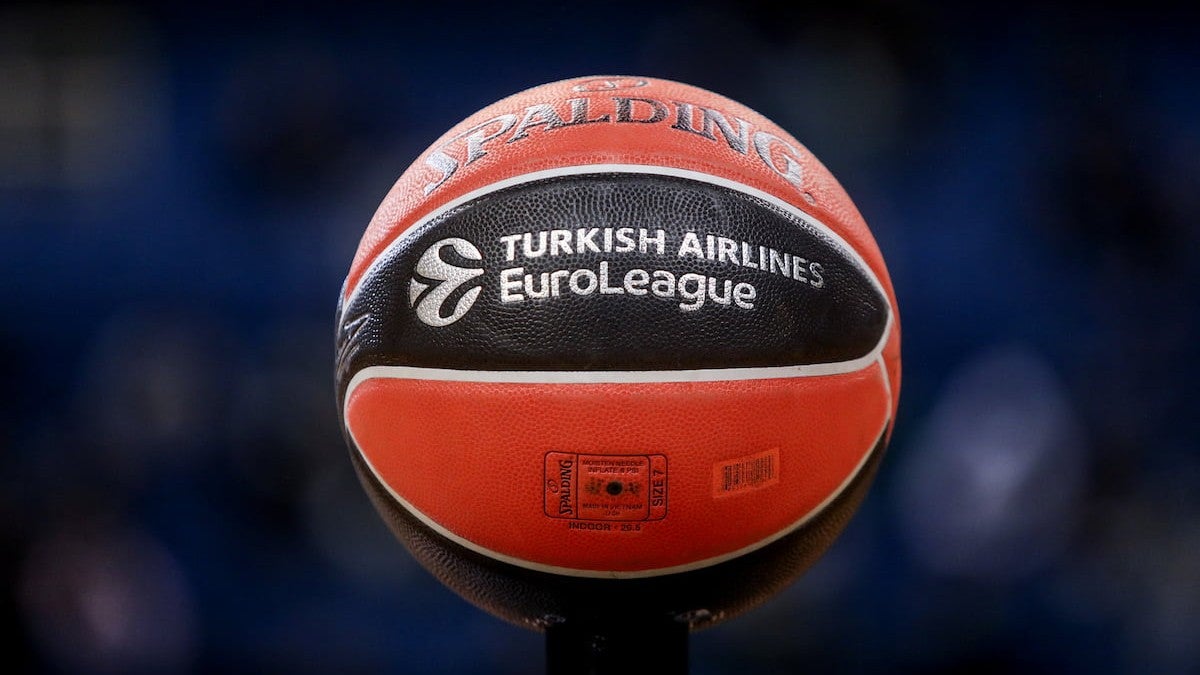
European basketball’s elite EuroLeague has confirmed it will expand from 18 to 20 teams from the 2025-26 season after gaining approval from the competition’s board.
The change was approved by the EuroLeague Commercial Assets Board of Shareholders during a meeting earlier today and will now be submitted to the General Assembly for final ratification.

Discover B2B Marketing That Performs
Combine business intelligence and editorial excellence to reach engaged professionals across 36 leading media platforms.
The expansion will see EuroLeague fill three vacant spots ahead of the 2025-26 season, due to German side Alba Berlin withdrawing from the competition after the current season to compete in the FIBA-organized Basketball Champions League (BCL).
It has been reported that Hapoel TelAviv will join the EuroLeague next season on a one-year license as winners of the second-tier EuroCup for the 2024-25 season, while Valencia Basket, who were relegated from the EuroLeague in the 2023-24 season, and Dubai Basketball are likely to fill the other two spots on initial three-year licenses.
In a statement, Euroleague Basketball said: “The board agreed to present a preliminary list of proposed participating teams, contingent upon the completion of all required formalities.”
The board said it had also discussed potentially further expanding the number of teams beyond the 2025-26 season.

US Tariffs are shifting - will you react or anticipate?
Don’t let policy changes catch you off guard. Stay proactive with real-time data and expert analysis.
By GlobalDataThe competition will maintain its current format for the 2025-26 campaign, increasing the number of regular-season games from 34 to 38.
The six top teams will advance directly to the playoffs, while the four others will enter a playoff.
The expansion comes as EuroLeague attempts to fend off the rival BCL after Alba Berlin announced its defection earlier this month after spending the last 24 years competing in Euroleague competitions – 12 in the EuroLeague and 12 in the EuroCup.
At the time, Alba Berlin managing director Marco Baldi, said: “We are confident that the FIBA-led European competitions will grow significantly in the coming years, which is why we've decided to join the Basketball Champions League.”
The BCL was established in 2015 as a way for governing body FIBA to wrest control of top-tier European basketball from the EuroLeague organization, which is owned by its 12 permanent member clubs.
FIBA manages international basketball on the continent but does not run Europe’s international club competitions.
Alba Berlin’s move has emboldened FIBA, which also recently partnered with the US National Basketball Association to collaborate on the establishment of a new European competition that will target major European capitals, such as Berlin, for representation.
Other major urban centers, such as London (UK) and Paris (France), have been mooted to join.
Last month, EuroLeague released a statement opposing the NBA’s proposed European expansion, suggesting that while it could support a joint growth initiative, any venture that would undermine the EuroLeague would not be supported.





